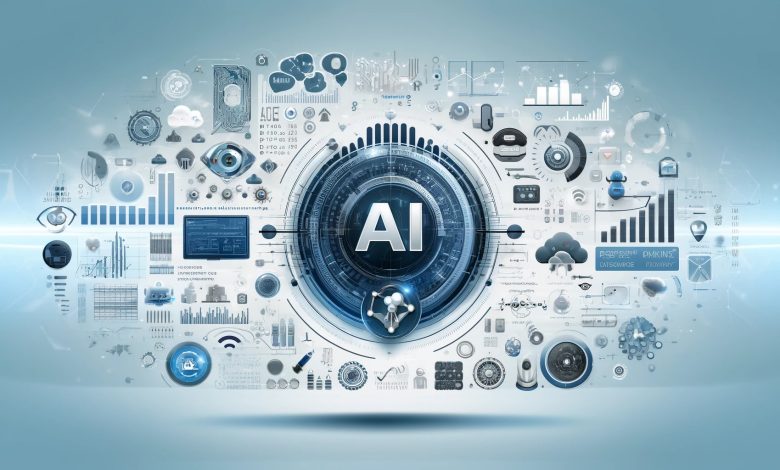Top AI Tools and Software of 2024: Revolutionizing Your Workflow
Unleashing the Power of Artificial Intelligence: The Essential AI Tools Revolutionizing Business Operations in 2024

In recent years, artificial intelligence (AI) has transitioned from a niche technology to a fundamental component of modern workflows. The rise of AI tools and software is revolutionizing various industries, offering unprecedented efficiencies and capabilities. As we move into 2024, the interest in AI tools continues to surge, driven by their ability to enhance productivity, streamline processes, and provide insightful data analytics.
AI tools are no longer just a luxury for tech giants; they have become accessible to businesses of all sizes and sectors. From automating routine tasks to providing advanced data insights, AI tools are helping organizations stay competitive in an increasingly digital world. This article delves into the most popular AI tools of 2024, exploring how they can transform your workflow and bring your business to the forefront of innovation.
What are AI Tools?
Artificial Intelligence (AI) tools refer to software applications that utilize AI technologies to perform tasks that typically require human intelligence. These tasks include learning, reasoning, problem-solving, understanding natural language, and recognizing patterns. AI tools can analyze vast amounts of data, make predictions, automate processes, and even interact with humans in a natural and intuitive manner.
The key benefits of using AI tools include:
- Increased Efficiency: AI tools can automate repetitive and time-consuming tasks, freeing up valuable time for employees to focus on more strategic activities.
- Improved Decision Making: By analyzing large datasets quickly and accurately, AI tools provide insights that help in making informed decisions.
- Cost Savings: Automation and efficiency lead to significant cost reductions in various business processes.
- Enhanced Customer Experience: AI-driven chatbots and virtual assistants offer personalized and instant support, improving customer satisfaction.
- Scalability: AI tools can easily scale to handle increased workloads, making them suitable for growing businesses.
Categories of AI Tools
Artificial Intelligence tools can be categorized based on their primary functions and the areas they impact the most. Here are some key categories:
AI Tools for Data Analysis
-
- Tools that assist in data mining, data cleaning, and data visualization.
- Examples: AI-powered data analytics platforms that identify trends and patterns.
Customer Support AI Tools
-
- Chatbots and virtual assistants that provide real-time support to customers.
- Examples: AI-driven customer service platforms that handle inquiries and resolve issues.
AI Marketing Tools
-
- Tools for creating personalized marketing campaigns and analyzing consumer behavior.
- Examples: AI tools that optimize ad placements and predict customer preferences.
AI Tools for Content Creation
-
- Tools that generate content, including text, images, and video.
- Examples: AI software for writing articles, designing graphics, and editing videos.
Workflow Automation Tools
-
- Tools that automate routine tasks and integrate with various business systems.
- Examples: AI platforms that streamline processes like scheduling, billing, and reporting.
Case Studies
Choosing the Right AI Tool for Your Business
Selecting the right AI tool for your business involves several considerations:
- Identify Your Needs: Determine the specific tasks or processes that you want to improve with AI.
- Evaluate Features: Compare the features of different AI tools to find the best fit for your requirements.
- Consider Integration: Ensure the AI tool can seamlessly integrate with your existing systems.
- Budget: Factor in the cost of the AI tool and its return on investment.
Future Trends in AI Tools
The future of Artificial Intelligence tools looks promising, with several emerging trends set to shape the industry:
- AI and IoT Integration: Combining AI with the Internet of Things (IoT) for smarter, more responsive systems.
- Enhanced Personalization: Artificial Intelligence tools that offer even more tailored experiences for users.
- AI in Healthcare: Advanced AI tools for diagnostics, treatment planning, and patient care.
- Ethical AI: Development of Artificial Intelligence tools with built-in ethical considerations and bias mitigation.
Conclusion
AI tools are transforming the way businesses operate, offering unprecedented opportunities for efficiency, cost savings, and innovation. By understanding and leveraging these tools, businesses can stay competitive and thrive in the digital age. Explore the Artifical Intelligence tools highlighted in this article and discover how they can revolutionize your workflow.




